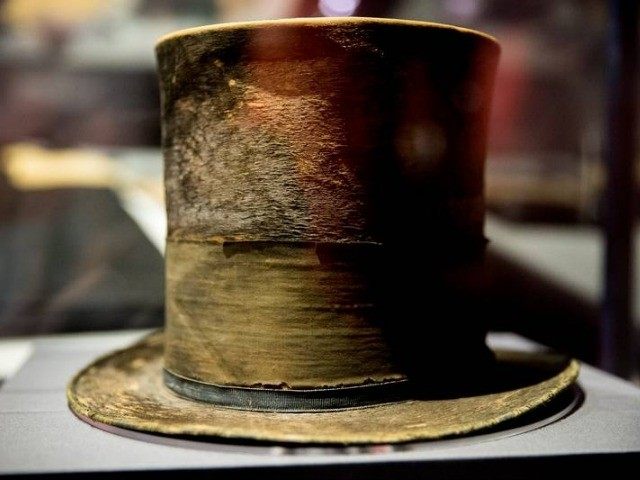President Abraham Lincoln died 150 years ago today, succumbing to a bullet wound delivered by the famous stage actor turned assassin, John Wilkes Booth. The 16th President of the United States was shot in the back of the head while watching the play “Our American Cousin” at Ford’s Theater in Washington D.C.
Lincoln’s assassination had actually been part of a larger plot by Confederate sympathizers angry about the South’s looming defeat in the American Civil War. When the Confederate Army of Northern Virginia surrendered at Appomattox Courthouse on April 12, 1865, Booth and his fellow would-be assassins decided to go through with the plot. The conspirators planned to assassinate Lincoln and other high-ranking government officials in order to send the Union government into chaos. Strangely enough, John Wilkes Booth’s father, named Junius Brutus Booth after an assassin of Julius Caesar, was also a famous actor and had sent a threatening letter to President Andrew Jackson in 1835. Though he threatened Jackson with assassination, Junius never carried it out; the younger Booth would end up pulling off the terrible deed 30 years later.
In the days leading up to his death, Lincoln was the happiest he had been during his entire presidency. Union victory was all but inevitable. However, the “Great Emancipator” had been having bad dreams about his own death and was struggling to get over the premature demise of his son, Willie. The fateful evening at Ford’s theater with his wife, Mary Todd Lincoln, was the president’s attempt to relax and return to a normal life.
Associated Press reporter Lawrence Gobright covered the dramatic events of the assassination that shocked the nation. He described the dramatic scene that spectators witnessed when Booth shot Lincoln.
The theatre was densely crowded, and everybody seemed delighted with the scene before them. During the third act and while there was a temporary pause for one of the actors to enter, a sharp report of a pistol was heard, which merely attracted attention, but suggested nothing serious until a man rushed to the front of the President’s box, waving a long dagger in his right hand, exclaiming, ‘Sic semper tyrannis,’ and immediately leaped from the box, which was in the second tier, to the stage beneath, and ran across to the opposite side, made his escape amid the bewilderment of the audience from the rear of the theatre, and mounted a horse and fled.
Booth then ran out of the theater and is believed to have yelled, “The South shall be free! I have done it! Virginia is avenged!”
In the Regnery History book, Backstage at the Lincoln Assassination, author Thomas A. Bogar described the reactions in Ford’s theater to the chaotic events of the assassination. Bogar wrote that when ticket agent Joe Sessford saw Booth leap onto the stage he exclaimed, “My God, then, is John Booth crazy?” Others were shouting, “Hang him! Kill Him! Shoot Him! Lynch him!” Actor Ned Emerson described the theater as “a whirlpool, [an] inextricable chaos of mad humanity [swirling] hither and tither in hysterical aimlessness… no one seemed to have retained a scintilla of self-possession.”
Lincoln’s assassin was able to slip out of the theater and went on the run from the law. He was hunted down by authorities and shot in a burning Virginia farm house near Port Royal, Virginia.
The president’s death stunned the nation and there was an enormous outpouring of grief as Lincoln’s funeral train made its 1,600-mile trip across the country, bringing his body from Washington, D.C. to its final resting place in Springfield, Illinois.
Lincoln’s legacy in the United States overshadows almost any other American outside of George Washington. Though he was so controversial in his own time that his presidential election sent one section of the country into open rebellion, there is no question that Lincoln’s life, leadership, and principles profoundly shaped the course of this nation’s history.
In a recent Wall Street Journal op-ed, James L. Swanson And Michael F. Bishop wrote of Lincoln’s importance to modern Americans and the legacy of his untimely death. “The death of Lincoln reminds us that leadership matters, and that much depends on the occupant of the White House,” Swanson and Bishop wrote. “Lincoln lived and died for liberty, union and equal rights for all people. With every fiber of his being, Abraham Lincoln believed in American greatness and exceptionalism.”
One-hundred fifty years after Lincoln’s death, as the country gears up for another presidential election, it is important to look back on the life and principles of this quintessential American and profoundly gifted statesman.

COMMENTS
Please let us know if you're having issues with commenting.